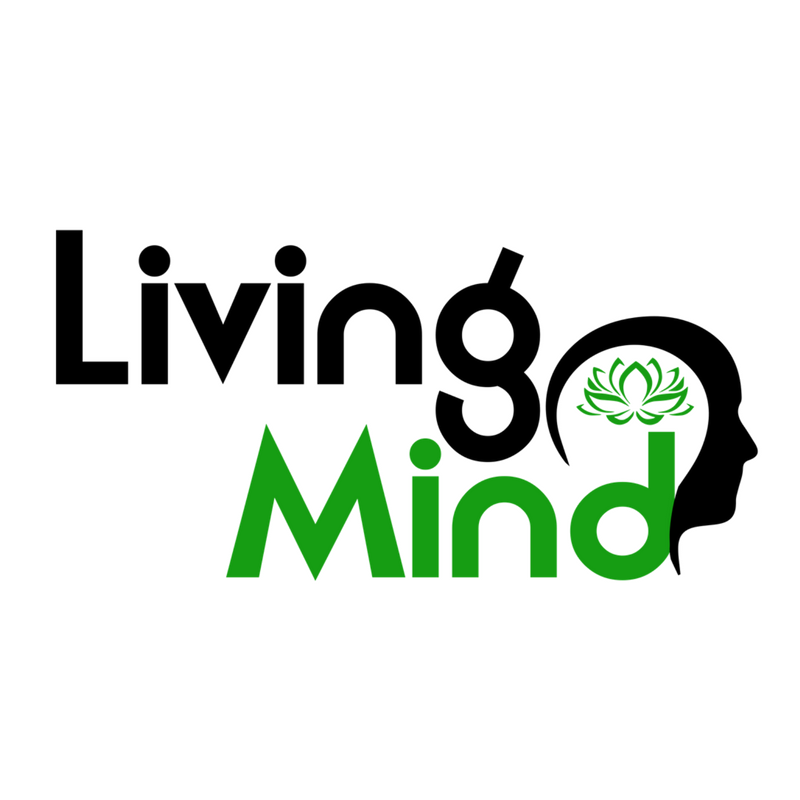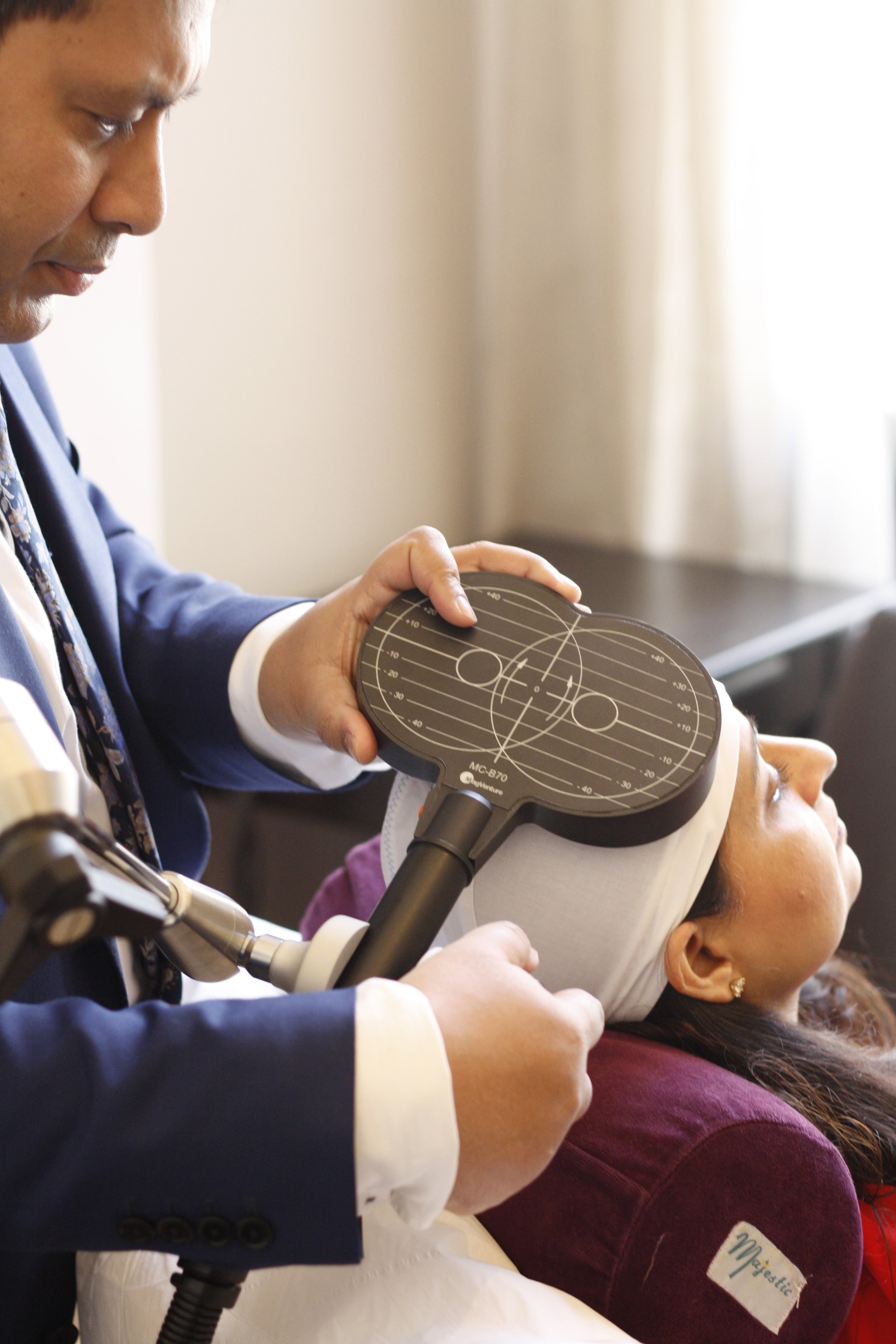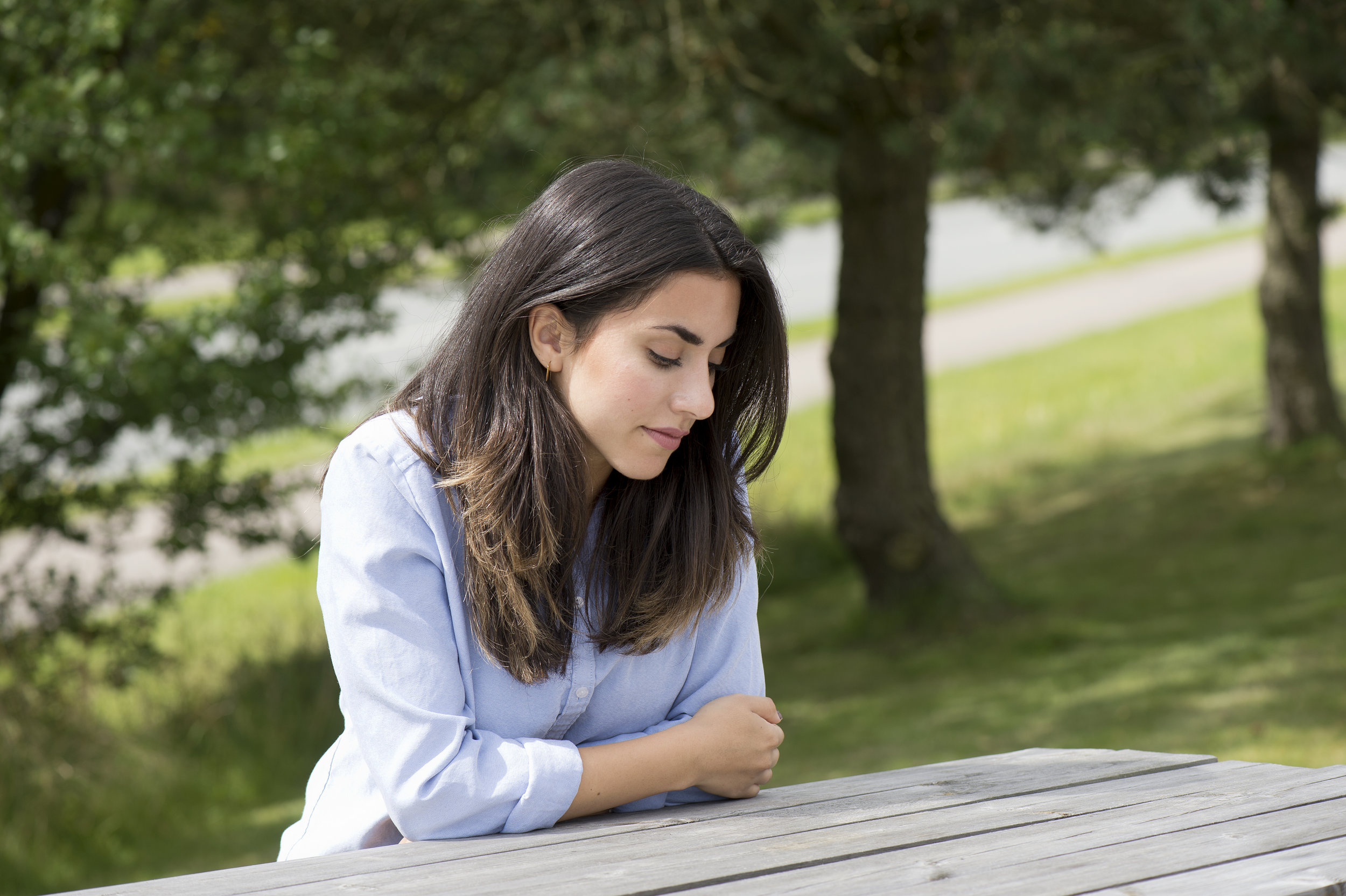Can RTMS treat depression without the side effects of medication?
/Whatever headlines you might read about how antidepressants don’t work, for millions of people, they do.
In 2016, there were 64.7 million prescriptions for them in England alone. So, as a country, we’re taking a lot of these little pills – and mostly finding them very beneficial. However, they don’t come without drawbacks. Like all medications, they can have side effects – such as loss of libido, nausea, weight gain, shakiness or tiredness.
Another treatment option which isn’t talked very much about is RTMS (Repetitive Transcranial Magnetic Stimulation). The treatment bills itself as a drug-free therapy powerful enough for patients to stop taking antidepressants.
It sounds a bit terrifying, and might make you think of scenes of people getting strapped down for Electroconvulsive Therapy (ECT). That’s not really how it happens. It passes a magnetic pulse into your brain, producing a small amount of electric current in a specific area, and people can sit up and chat throughout the treatment. Although it’s fairly rare for people to have it on the NHS due to the cost, it is approved by NICE in cases where people have ‘treatment resistant’ depression (if antidepressants have not been effective) or for people who can’t or won’t tolerate the side effects.
What to expect if you have RTMS
The treatment involves placing a coil next to your head and passing a magnetic pulse into your brain creating a small electric current, consultant psychiatrist Dr Arghya Sarkhel explains.
It doesn’t hurt, but you will hear and feel a tapping sensation, as if there is a small woodpecker pecking at your skull.
The aim is to stimulate your neurones to become more active, helping people regain interest in life and start to function better.
Each session will last around 20 minutes, during which time you’re totally conscious and can chat, lie back or read a magazine if you’re so inclined.
Afterwards, you should be fine to go back to work and carry on as normal. However, you may feel slightly ‘out of it’ for a few hours afterwards, so it might be a good idea to travel by public transport rather than driving to your appointment to be on the safe side.
People usually have a course lasting four to six weeks, having RTMS five days a week. By this point, the hope is that you will be in remission and free of symptoms, to the extent you do not need further treatment (although you may arrange top-up treatments every month or so.)
Before each session, it’s important to be well hydrated so your brain is working at its proper capacity. Drink plenty of water beforehand, and bring a bottle with you to drink afterwards.
You should avoid any strenuous activity before and immediately after the session.
The treatment isn’t suitable for anyone with a metal implant in their head. You should also keep any metallic objects and bank cards away from you during the treatment, as they could affect the magnetic pulse.
There is a minor risk that it could trigger a seizure, however the likelihood of this is extremely low. Other more common side effects include a headache or scalp tingling.
Some people describe feeling a fog of depression lifting from them soon after starting the treatment.
However, just like any treatment it is unlikely to work miracles – so you need to make sure you continue working hard to keep up a healthy lifestyle in general (exercise, healthy eating, socialising) to get the full benefits.
Consultant psychiatrist Dr Arghya Sarkhel, who offers the treatment at his clinic Living Mind, says it can be really useful for people who want to stop taking antidepressants.
‘It is almost a side-effect free intervention,’ he said. ‘But not many NHS trusts deliver it, because it is expensive.’
We asked him why patients might want to avoid medication for depression. He said they can cause various side effects, ranging from sexual dysfunction to weight gain. Note the word ‘can’: Many people won’t experience any of these – and in any case, if you’re having an acute episode of depression, you can probably put up with feeling a little shaky or turned off if it helps you get back on an even keel.
Dr Sarkhel told metro.co.uk: ‘Antidepressants do have their place, and they are an effective way of treating biological and cognitive symptoms of depression: thoughts of hopelessness, suicide, as well as loss of appetite and loss of interest in day-to-day activities.
‘They are often the first drugs prescribed by GPs, but they are not without problems. The most popular are SSRIs, such as fluoxetine, citalopram, sertraline and escitalopram.
‘One of the things we don’t talk about much is sexual dysfunction, which can be equally frustrating for men and women. Men mainly talk about erection difficulties, sometimes dysfunction in ejaculation.
‘Women can have orgasm dysfunction, but the most common side effect is a diminished libido – a loss of interest in sexual contact. ‘Obviously that has a significant impact on their mood and quality of life and relationships. ‘Unfortunately, that is one of the recognised side effects of SSRIs.’
This is one of the most potentially awkward side effects, and something which may put people off taking the medication. You’re probably more willing to put up with having a stomach ache than losing interest in your partner or not being able to orgasm for the duration of the time you take it.
However, Dr Sarkhel stressed that not everyone will experience this. It also doesn’t last after you stop taking the medication, so it’s not like you’re confining your sex life to the dustbin for the rest of your life.
Other side effects from SSRIs can include stomach upsets, nausea, vomiting and sometimes diarrhoea, he said. Occasionally they cause weight gain, and they can cause tiredness.
Another potential issue is that they can be difficult to stop taking. Some people talk about having a sensation of ‘brain zapping’ as the medication leaves their system, particularly if the drug has a short half life so there is less hanging around in the body to taper gradually.
‘Sometimes people have excessive sweating, yawning or nightmares,’ Dr Sarkhel said. ‘Particularly increased anxiety is one of the common ones. A lot of people can potentially go back on them and retire them more slowly.
A couple of our patients had difficulty coming off Venlafaxine. One patient wanted to come off because she wanted to start a family. As soon as we started reducing it, she started experiencing heightened anxiety and sleep problems.’
People who don’t do well on SSRIs might try Mirtazapine.
It generally has a sedative side effect, and can cause people to put on weight due to increased appetite. These side effects aren’t usually helpful, but in some cases they might be positive.
‘We prescribe it when patents are having sleep problems or their eating is poor, because we want to take advantage of the side effects,’ Dr Sarkhel said.
He said that for patients who choose RTMS to go ‘drug free’ and avoid these kinds of side effects, it’s important to not rely on it entirely to fix everything.
‘During the sessions of RTMS, I tend to spend time with the patient talking about lifestyle, diet or nutrition,’ he said.
‘I’m very interested in mindfulness. If we can get our brains engaged in meaningful activities, the success of RTMS is much more superior.
‘So we combine mindfulness with RTMS during these sessions.’
With the cost of RTMS running into thousands of pounds if you are treated privately, it’s likely to be an option for people who have exhausted more obvious methods of treatment, rather than the first thing you turn to.
It’s definitely worth trying medication first, to see if you are able to tolerate the side effects (you may be one of the lucky ones who has none at all).



